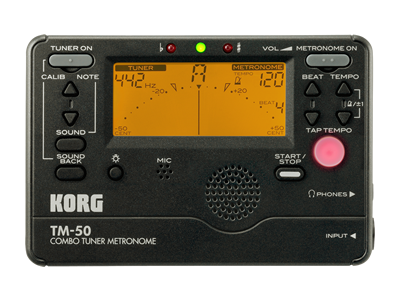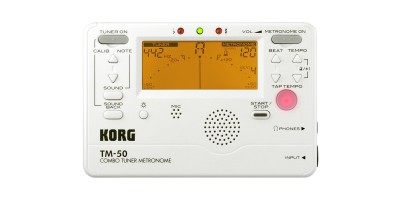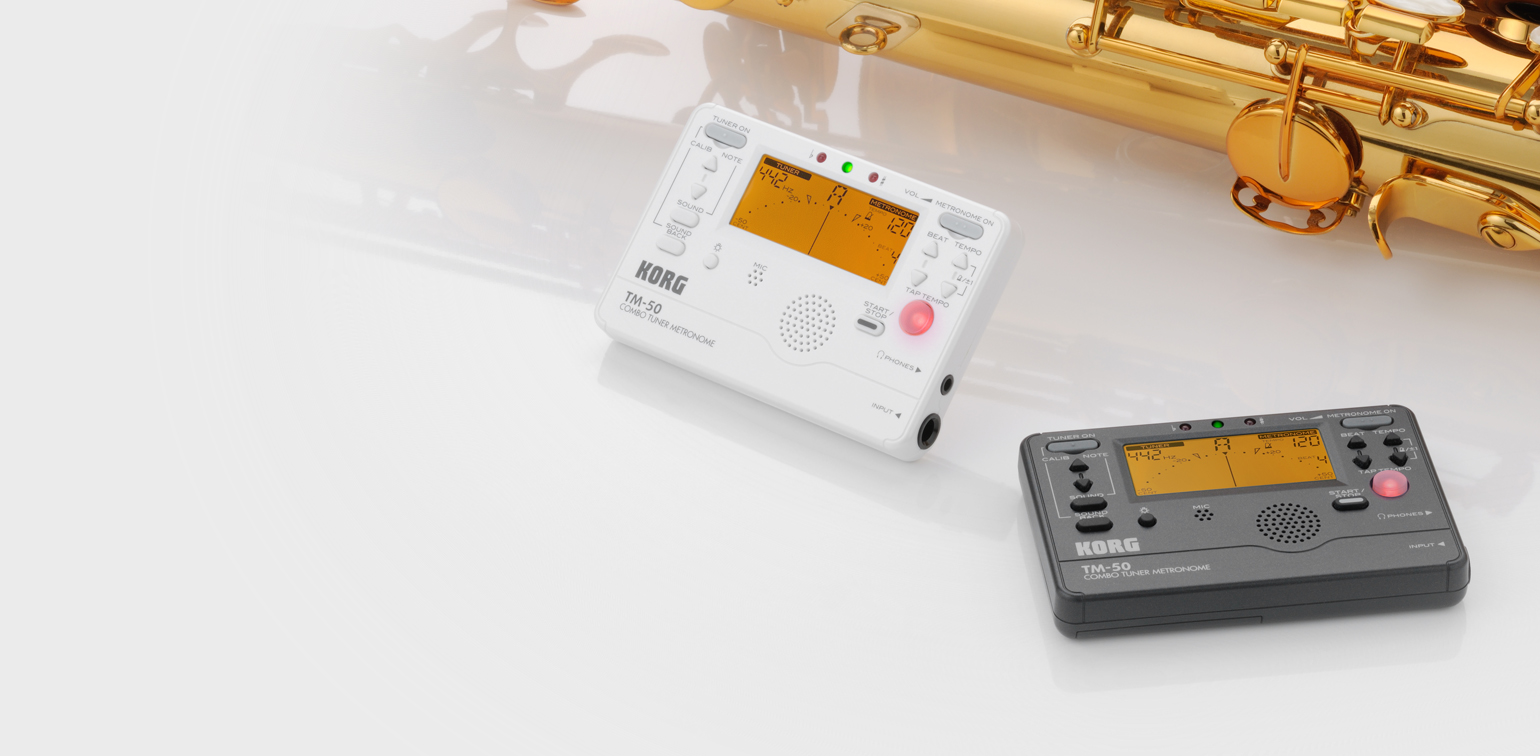
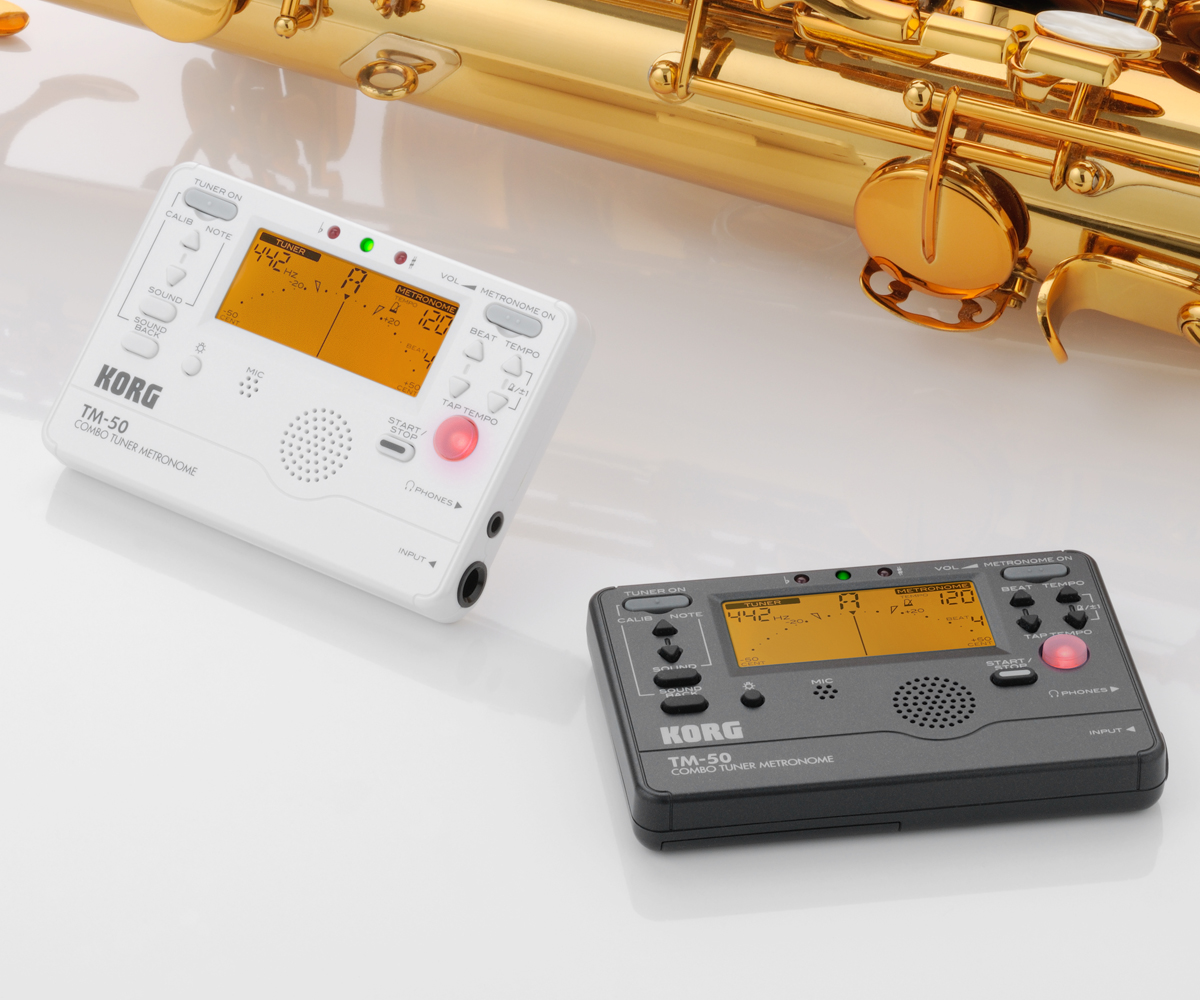
Tuner delivers outstanding functionality
Newly designed needle-style LCD meter with excellent response and wide detection range
The TM-50 features extremely fast response to audio input from wind and other instruments, and the redesigned meter display method allows the pitch to be accurately and instantly shown without any time lag. Wind players will no longer experience the problem of their pitch changing spontaneously before it can be displayed accurately; this ensures that you'll be able to develop stable and drift-free pitch.
The detection range is extremely wide, extending from C1 (32.70 Hz) to C8 (4186.01Hz) which covers the note ranges of wind, string, and most other types of instruments. Even potentially difficult instruments that have a low pitch and numerous overtones can be tuned accurately, thanks to Korg's proprietary high-precision technology. The built-in high-sensitivity mic also allows easy and accurate tuning of acoustic instruments such as guitar and ukulele; alternatively, you can use the separately sold CM-100L contact mic to send the vibrations directly to the tuner for even greater reliability.
The Sound Out function produces a reference tone from the internal speaker
In addition to visual tuning using the meter, you can use the Sound Out function to produce a reference tone from the internal speaker or headphones, and tune by ear. You can specify the reference tone in a three-octave range from C3 (130.81 Hz) to C6 (1046.50 Hz) which covers a wide variety of instruments.
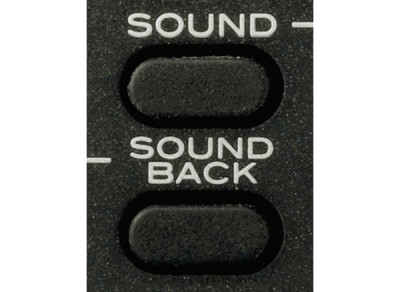
In response to the audio input, the Sound Back function plays the nearest reference tone from the speaker while showing the discrepancy in the meter - ideal for developing your sense of pitch
The tuner can be used not only to detect and inform you of pitch discrepancies, but also as a tool that helps you develop the ability to hear and produce the correct pitch. That's why the TM-50 provides the proprietary Sound Back function* that until now has been featured only on Korg's high-end tuners. Detecting the pitch of your audio input, this function sounds the nearest reference tone from the speaker while the meter shows the pitch difference between your input and the reference tone. Since the pitch is indicated in both visual and audible form, this not only allows you to tune more accurately, but is also an ideal method for training your sense of pitch. Developing your ear in this way is an indispensible way to practice, especially for the beginner.
*This function is available for input via the INPUT jack or when using earphones.
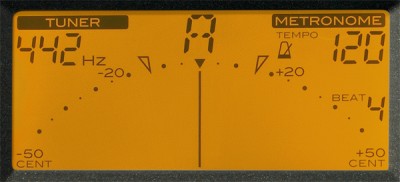
Marks indicate pure major/minor third intervals
When performing in a brass band or orchestra, incorrect pitch is particularly noticeable for harmonic intervals of a third, yet by slightly skewing the pitch of a major or minor third interval from the equal-tempered pitch, you can obtain a more pure-sounding harmony that satisfies the ear. The meter scale of the TM-50 provides marks that indicate pure major and minor thirds relative to a given pitch; simply by tuning. When the needle aligns with the appropriate mark*, you'll be able to produce beautiful harmony when playing in an ensemble. This is extremely convenient not only for wind instruments, but also for vocal or a cappella practice.
*When tuning to a pure major or minor third, the note that should be adjusted will depend on the music you're playing.



